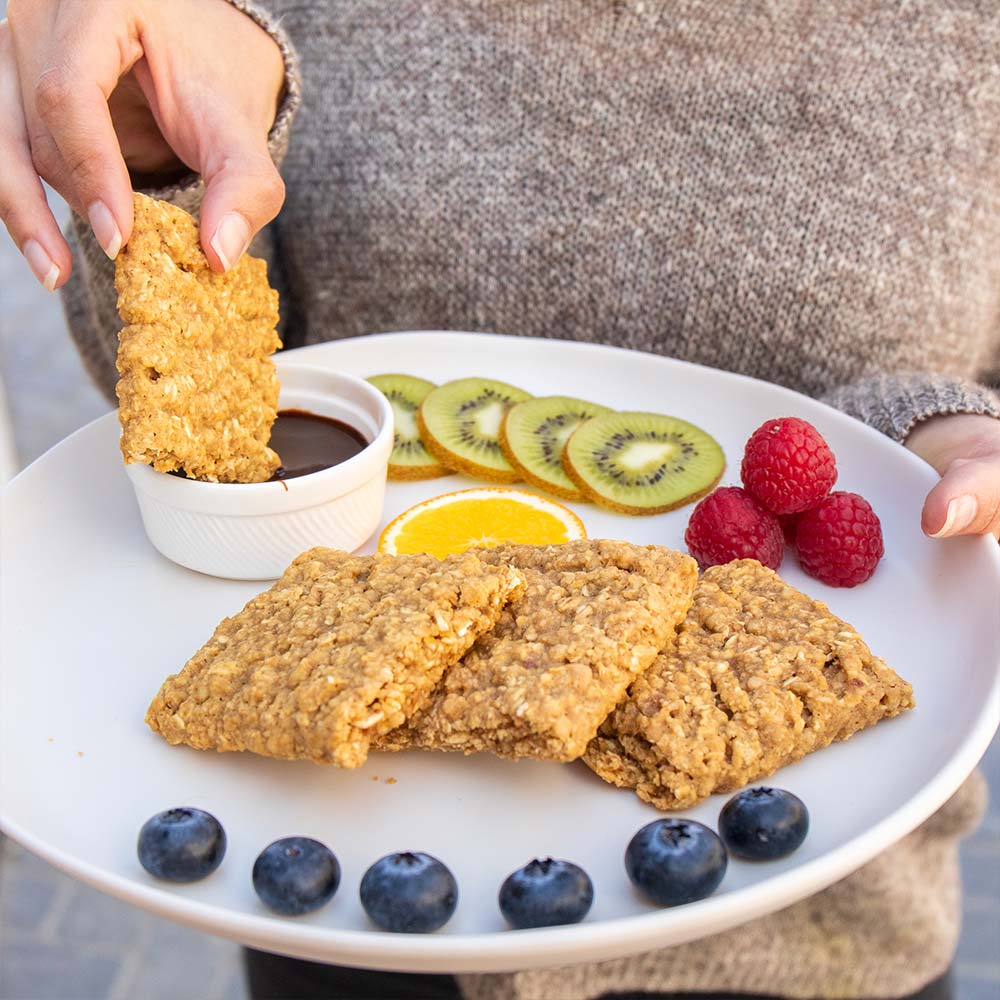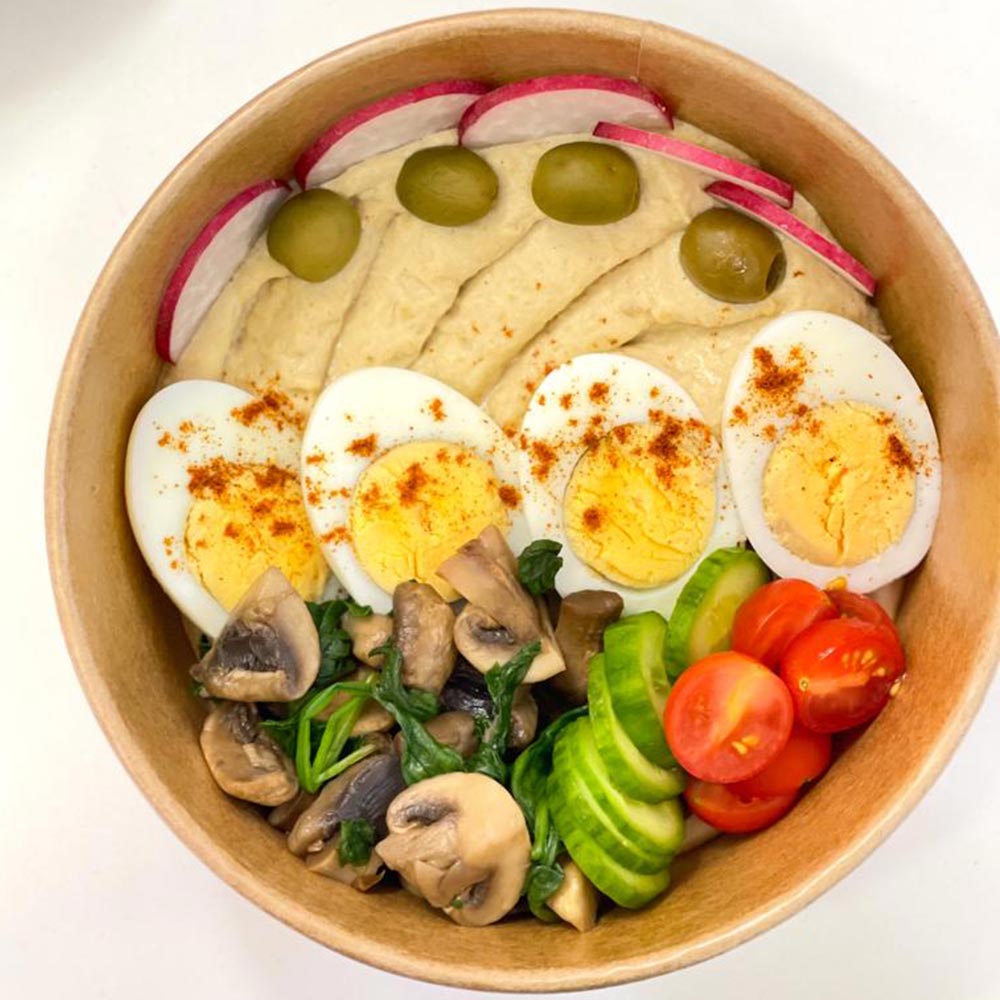Polycystic Ovary Syndrome (PCOS) is a common health
condition affecting many women worldwide. It can cause a range of symptoms,
including irregular periods, weight gain, and fertility issues. Managing PCOS
often involves lifestyle changes, particularly in diet. Creating balanced and
healthy meal plans is crucial for managing the symptoms effectively. In the UAE,
where dietary habits can vary widely, finding healthy meal plans in Dubai that
cater to its needs can make a significant difference in maintaining a balanced
lifestyle.
Understanding PCOS
PCOS is a hormonal disorder that affects the ovaries. Women
with PCOS may have enlarged ovaries containing small cysts that produce excess
androgens (male hormones). This hormonal imbalance can lead to symptoms like:
1. Irregular menstrual cycles
2. Excess hair growth
3. Acne
4. Weight gain
5. Infertility
The exact cause of PCOS is unknown, but factors like
genetics, insulin resistance, and inflammation are believed to play a role.
Importance of Diet in Managing PCOS
Diet plays a crucial role in managing PCOS. Eating a
balanced diet can help regulate insulin levels, reduce inflammation, and
maintain a healthy weight, all of which are important for managing the symptoms. Key dietary principles for its management include:
1. Low Glycemic Index (GI) Foods: Foods with a low GI help
maintain stable blood sugar levels.
2. Anti-Inflammatory Foods: Reducing inflammation can alleviate
some its symptoms.
3. Balanced Macronutrients: A good balance of carbohydrates,
proteins, and fats supports overall health.
Building a PCOS-Friendly Meal Plan
Creating a PCOS-friendly meal plan involves selecting foods that help manage symptoms while providing essential nutrients. Here are some key components:
1. Low GI Carbohydrates
Carbohydrates with a low glycemic index release glucose
slowly, helping to maintain stable blood sugar levels. Examples include:
- Whole grains (quinoa, brown rice, oats)
- Legumes (lentils, chickpeas, beans)
- Non-starchy vegetables (broccoli, spinach, bell peppers)
2. Lean Proteins
Proteins are essential for muscle repair and growth and help
keep you feeling full longer. Good sources include:
- Lean meats (chicken, turkey)
- Fish (salmon, mackerel)
- Plant-based proteins (tofu, tempeh, legumes)
3. Healthy Fats
Healthy fats are important for hormone production and
overall health. Include sources like:
- Avocados
- Nuts and seeds (almonds, chia seeds, flaxseeds)
- Olive oil
4. Fiber-Rich Foods
Fiber helps improve digestion and can aid in weight
management. High-fiber foods include:
- Whole grains
- Fruits (berries, apples, pears)
- Vegetables (broccoli, carrots, Brussels sprouts)
5. Anti-Inflammatory Foods
Anti-inflammatory foods can help reduce symptoms of PCOS.
Include:
- Berries (blueberries, strawberries)
- Fatty fish (salmon, sardines)
- Leafy greens (spinach, kale)
Sample PCOS Meal Plan
Here's a sample meal plan that incorporates these
principles:
Breakfast
Option 1: Greek yogurt with mixed berries, chia seeds, and a
drizzle of honey.
Option 2: Oatmeal topped with sliced almonds, fresh
blueberries, and a sprinkle of cinnamon.
Mid-Morning Snack
- Apple slices with almond butter
- Carrot sticks with hummus
Lunch
Option 1: Grilled chicken salad with mixed greens, cherry
tomatoes, cucumbers, and olive oil vinaigrette.
Option 2: Quinoa and black bean salad with diced bell
peppers, corn, avocado, and lime dressing.
Afternoon Snack
- Mixed nuts (almonds, walnuts, pistachios)
- A small serving of Greek yogurt with a handful of berries
Dinner
Option 1: Baked salmon with roasted Brussels sprouts and
sweet potatoes.
Option 2: Stir-fried tofu with broccoli, bell peppers, and
brown rice.
Evening Snack
- A handful of pumpkin seeds
- A small portion of dark chocolate (70% cocoa or higher)
Hydration and Supplements
Staying hydrated is essential for overall health and
managing PCOS. Aim to drink at least 8 cups of water a day. Herbal teas like
green tea and spearmint tea can also be beneficial. Supplements like inositol,
omega-3 fatty acids, and vitamin D may help manage its symptoms, but it's
important to consult with a healthcare provider before starting any new
supplement regimen.
Real-World Application: Healthy Meal Plans
In the UAE, the culinary scene offers a rich variety of
foods that can be tailored to a PCOS-friendly diet. Many restaurants and meal
delivery services provide healthy meal plans that focus on whole, unprocessed
foods, and balanced nutrition. Here are some tips for finding and customizing
healthy meal plans:
1. Research Local Options: Look for meal delivery services and
restaurants that offer customized meal plans. Many services cater to specific
dietary needs, including PCOS.
2. Consult a Nutritionist: Working with a nutritionist can help
you create a personalized meal plan that fits your lifestyle and dietary
preferences.
3. Explore Local Markets: offer fresh produce, lean proteins,
and whole grains that are essential for a PCOS-friendly diet. Shopping at these
markets can provide access to high-quality ingredients.
4. Stay Informed: Keep up-to-date with the latest research and
dietary recommendations for PCOS. This can help you make informed choices about
your diet and lifestyle.
Conclusion
Managing PCOS through diet is a powerful tool that can
significantly improve quality of life. By focusing on low glycemic index foods,
lean proteins, healthy fats, fiber-rich foods, and anti-inflammatory
ingredients, you can create a balanced meal plan that supports hormone balance
and overall health.
The journey to managing the condition is unique for every individual,
but with the right dietary choices and a commitment to a healthy lifestyle, it
is possible to manage symptoms effectively and lead a fulfilling life. Whether
you are in Dubai or anywhere else in the world, adopting a PCOS-friendly diet
is a step towards better health and well-being.
Remember, it's not just about following a strict diet but
making sustainable and enjoyable changes to your eating habits. Seek support
from healthcare providers, nutritionists, and support groups to stay motivated
and informed. With the right approach, you can take control of your PCOS and
embrace a healthier, more balanced lifestyle.






























